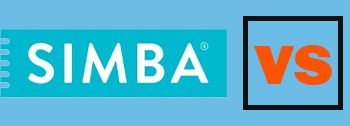Are you battling nighttime anxiety or insomnia? If yes, a weighted blanket can offer a solution. A weighted blanket is a blanket with either glass microbeads or plastic pellets designed to add pressure to the body. These types of blankets weigh between 2 and 13 KG, which is heavier than standard duvets and comforters. But what weight should you get?
How Heavy Should a Weighted Blanket Be for Adults?
Weighted blankets are known to kindle the production of happiness hormones including serotonin and dopamine and decrease levels of stress hormone – cortisol. This in return helps you enter into a relaxed state that is conducive to falling and staying asleep.
However, if the blanket is a pound heavier than it should be, it might not yield the same desired results. But the weight of a the blanket varies from child to adult.
The general guideline on the type of weighted blanket you should get based on your body weight is highlighted below (adults).
| Body Weight (Stone) | Body Weight (KG) | Blanket Weight (KG) |
| 8.50 | 54 | 5.4 |
| 9.13 | 58 | 5.8 |
| 9.92 | 63 | 6.3 |
| 10.71 | 68 | 6.8 |
| 11.34 | 72 | 7.2 |
| 11.65 | 77 | 7.7 |
| 12.76 | 81 | 8.1 |
| 13.54 | 86 | 8.6 |
| 14.17 | 90 | 9.0 |
It is easy to find the right weighted blanket for adults, children, and even older people based on the above table.
When it comes to young children, a weighted blanket above 4.5 Kg is too heavy, and I should mention that weighted blankets should not be used with babies at all costs. And if you have a child below five, talk to your doctor before using a weighted blanket.
You can use the same chart to find out the weight of a weighted blanket for older persons. This group can benefit more from weighted blankets because you begin to experience problems with your sleep as you get older. If you have seniors in your home with health issues such as sleep apnea, consider getting a weighted blanket that is around less than 4.5 Kg because anything above that might be too dangerous.
But make sure you consult with your doctor beforehand to ensure you choose the right blanket that is correct for the older person’s weight.
Most people prefer a weighted blanket weighing around 10% of their weight, but the bottom line should be comforting.
How Heavy Should a Weighted Blanket Be for a Child?
Weighted blankets are recommended for children aged 3 and above who weigh a minimum of 3.5 stone. Many bedding brands have recently introduced weighted blankets explicitly designed for children and typically weigh from 1.3 Kg to 5.4 Kg.
Check the table below.
| Body Weight (Stone) | Body Weight (KG) | Blanket Weight (KG) |
| 1.42 | 9 | 1.3 to 1.8 |
| 2.05 | 13 | 1.8 to 2.2 |
| 2.83 | 18 | 2.2 to 2.7 |
| 3.46 | 22 | 2.7 to 3 |
| 4.25 | 27 | 3 to 3.6 |
| 4.72 | 30 | 3.6 to 4 |
| 5.67 | 36 | 4 to 4.5 |
| 6.30 | 40 | 4.5 to 4.9 |
| 7.09 | 45 | 4.9 to 5.4 |
As a parent, you should be extra vigilant when choosing your child’s weighted blanket. You should always consult with your family doctor to determine the appropriate weight of the blanket. Don’t go by the famous 10% rule when it comes to picking out your kids’ weighted blanket.
Even when you consult your family physician, you should still go for the ones in the lower end of the suggested weight range.
While weighted blankets are now popular, especially with young children, a number of their medical benefits have been strongly disputed. For instance, a report published in Pediatrics shows that weighted blankets do not help children fall asleep or stay asleep. Nevertheless, it helps children enjoy and feel comfortable.
Can a blanket be too heavy weighted?
A weighted blanket can be too heavy for a person, mainly if you don’t pick the accurate size. As a general rule of thumb, weighted blankets that are more than 15 Kg should be avoided. If you can’t move under the blanket, you should get one that is a few kilograms lighter.
Weight is one of the most important factors to consider when selecting a weighted blanket. Heavy blankets can cause you problems and can be hazardous for frail senior people or a child.
An ideal blanket should be based on the user’s size rather than the size of the bed.
If you have a heavier body weight relative to your height, you will not have problems using a heavier blanket.
What is the height of a weighted blanket?
Unlike weight, height doesn’t play a major role when choosing the perfect weighted blanket. It only comes into play when you are defining the overall size. Nevertheless, you want to choose a blanket that will accommodate your height.
Blankets tend to come in different dimensions and to choose the perfect dimension. You should consider not only the size of your blanket but also your height. Buy a weighted blanket that is slightly longer than you.
Who benefits from a weighted blanket?
Weighted blankets can be of help to many people, but it is often used by individuals with special conditions, including:
Autism spectrum disorder
People with Autism spectrum disorder (ASD) are more likely to experience anxiety disorders based on the Anxiety and Depression Association of America findings. A study by PubMed Central in 2014 found that children with ASD favoured weighted blankets over traditional ones.
Attention deficit hyperactivity disorder (ADHD)
A study found that people living with ADHD were satisfied with low-tech products, including weighted blankets.
Restless leg syndrome (RLS)
Many weighted blanket manufacturers claim that these blankets can help people with RLS, but this information should be taken with a pinch of salt.
Is the 10% rule important?
It’s suggested the 10% ratio to fall in between the standard guidelines. I understand that every individual is different, and if you find yourself landing between two weights of a blanket, this above ratio can be helpful.

 Nectar Mattress
Nectar Mattress 


